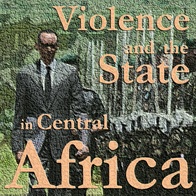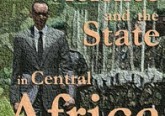
When president Nkurunziza announced his intention to run for a third term, serious unrest exploded in the streets of Bujumbura. In the last three weeks, violent clashes with the police have triggered fears of a new civil war and destabilisation of the entire African Great Lakes region. So far, the international community has been unable to calm the situation and over 110,000 Burundians have already fled the country. The Oxford Central Africa Forum hosted a round-table on the 15th of May to examine the causes of the current situation and discuss the prospects for peace and democracy in Burundi and the region. It gathered six researchers who have conducted fieldwork in Burundi:
- Professor Patricia Daley, School of Geography and the Environment [PD]
- Dr Andrea Purdekova, African Studies Centre [AP]
- Dr Olivier Sterck, Centre for the Study of African Economies [OS]
- Rowan Popplewell, School of Geography and the Environment [RP]
- Jean-Benoît Falisse, Department of International Development [JBF]
- Benjamin Chemouni, Department of International Development, London School of Economics [BC]
We present some of their analysis and findings here in a short series of three articles. In this third post, we discuss regional implications of the crisis.
The important attention the Burundi crisis has received from the international media shows not only concerns with the safety and future of millions of Burundians but also fears of a regional contagion. Among the key questions are the regional support of president Nkurunziza, the likelihood of a foreign intervention, the lessons for the power-sharing model of peace-building Burundi incarnated, and possibilities for regional and national actors to solve the crisis.
Nkuruniziza would not have been able to return to Burundi after the May 13th attempted coup without some support of the East African states and the international community. For them, stability in Burundi is paramount for three reasons. Firstly, because of Burundi’s role in the AMISOM (African Union Mission in Somalia) – providing 5n542 troops to the peace-keeping force in Somalia. Civil war in Burundi would lead to the immediate de-legitimization of the peace-force. Since 2005, the deaths of Burundians, however small the number, have been tolerated because of the grander project – the war against Al Shabaab. Secondly, the East African political elite were seeking to strengthen economic links across the region with Bujumbura as an important hub for resource flows. And finally, heads of states in the region are also seeking third terms and Nkurunziza’ success will legitimize and enforce their bid among their electorates. Burundi is a first out of a string of key elections in the Great Lakes Region. 2016 is election year in the DRC and in 2017 eyes will be pinned on Rwanda. The Burundi elections will serve as litmus tests of democratisation (are incumbents willing to give up power?) and the depth of peace (can elections proceed without instability and violence?). Burundi’s fragile peace is at stake, and that of the region more broadly. [PD & AP]
With regard to Burundi’s neighbour Rwanda more specifically, there are two key questions that arise: What does the 2015 election in Burundi mean with regard to Kagame’s potential bid for a third term in 2017? Will Rwanda seek to intervene in Burundi if things escalate further? On the first point, it is interesting to observe Kagame’s rhetoric on Burundi, and the role of the framing of the crisis that he deploys. “If your own citizens tell you we don’t want you,” he suggested recently, “how do you say I am staying whether you want me or not?” Nonetheless Kagame repeatedly underlines that the crisis is not really about the third term, it is about “delivery” (referencing Nkurunziza’s delivery to his people). In this manner, he is effectively sidelining or subsuming constitutionality to performance. Importantly, Rwanda’s political space is more tightly controlled than that in Burundi and it is very unlikely that we will see weeks of protest action in the streets. Opposition will be less visible, and internal pressure thus less pronounced. [AP]
Rwanda is certainly watching the situation in Burundi closely, and not only from the outside. There is talk of Rwandan presence in the form of spies and most recently, Antoine Masozera, the manager of Econet, was given 48 hours to leave the country on accusation of espionage. Will Rwanda seek to intervene militarily? While this is not impending, the official discourse in Rwanda is keeping that possibility open. Rwanda has already expressed concerns that the FDLR might take the advantage of the current situation in Burundi and destabilize Rwanda, which could help legitimise a pre-emptive intervention. There has been talk also of the FDLR joining forces with the Imbonerakure; an allegation that the Burundi government has officially denied. Another issue that could open the door to Rwandan intervention is the perceived threat of ethnic violence. The Rwandans have expressed fears that the Imbonerakure are receiving training directly from the FDLR, are being ‘brainwashed’ with genocidal ideology, and that anti-Tutsi leaflets are being circulated in the North of the country. Rwanda’s Minister of Foreign Affairs Louise Mushikiwabo said quite openly that “while we respect Burundi’s sovereignty in addressing internal matters, Rwanda considers the safety of innocent populations as a regional and international responsibility.” [AP]
It is now incumbent on the African Union and the international community to persuade or put pressure on Nkurunziza not to take revenge against the demonstrators or coup plotters (both are from different constituencies), and to respect the Arusha agreement by stepping down, postponing the elections, and allowing democratic process to function. A peace-keeping force made up of West Africans would provide the space for mediation to take place between the various political actors in Burundi. It would be tragic if the region and the international community were to stand by and watch Burundians killed as they demonstrate for their democratic rights, the country disintegrates into civil war, and ethnicity used instrumentally by unscrupulous politicians. [PD]
Burundi is a unique case on which to judge what power-sharing mechanisms can and cannot achieve in what Arend Lijphart termed as ‘deeply divided’ societies. After the civil war, Burundi implemented a complex scheme of consociational power-sharing, carefully instituting ethnic proportionality at all levels of the government. But what have been the effects of power-sharing with regards to salience of ethnicity, democratization and stability? To begin with, and despite what some critics would have predicted, the saliency of ethnicity in politics has diminished. On the other hand, power-sharing has prevented neither a gradual democratic backsliding with every progressive election, the current one notwithstanding, nor insecurity and destabilization. As Stef Vandeginste has previously argued, power-sharing in Burundi can be considered at most a ‘fragile safety valve,’ to some extent limiting but ultimately not preventing the consolidation of power in the hands of the dominant party. Power-sharing thus cannot guarantee, in itself, sustainable democratisation or long-term stability. The latter issue is closely related to the former, as the current crisis clearly demonstrates. [AP]
Despite the successful ethnic re-fashioning of power in Burundi in the past 15 years, a deeper change is necessary, one which includes but goes beyond free and fair political competition. What is needed is a more credible break with past styles of power and ways of relating to the society at the local level, a government able to directly address past injustice and core grievances today. [AP]
For part one in this series, see here. For part two, see here.





No Comment